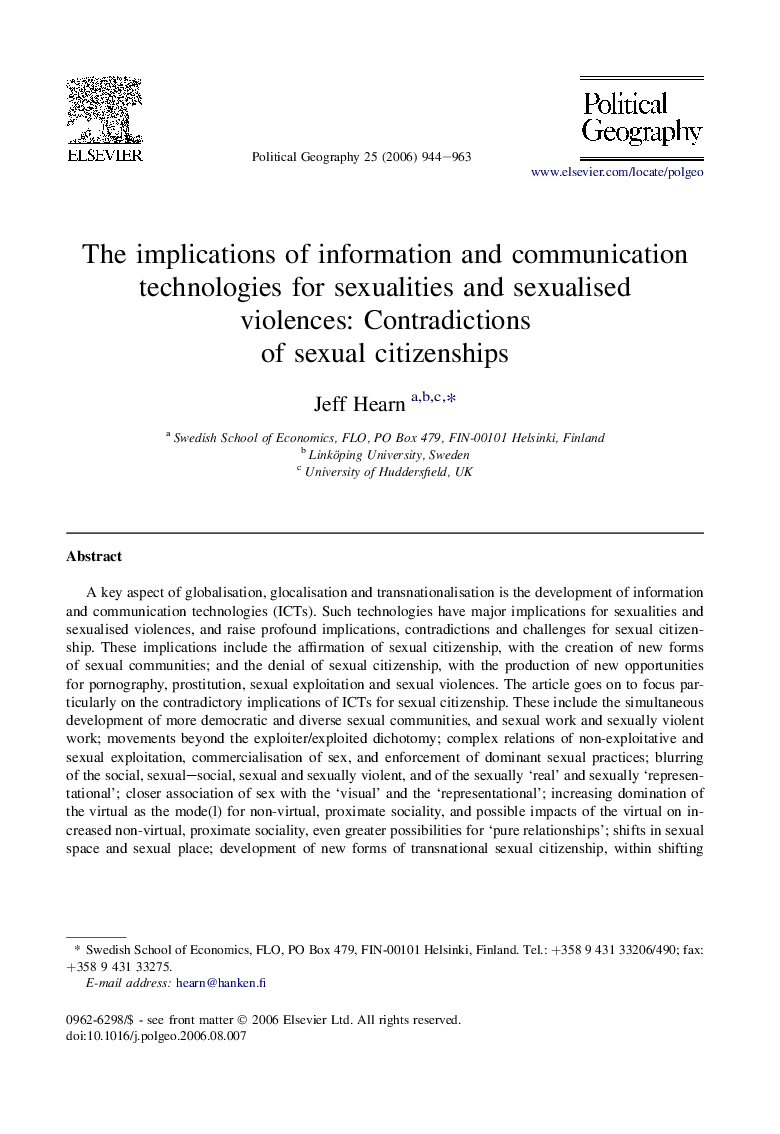| Article ID | Journal | Published Year | Pages | File Type |
|---|---|---|---|---|
| 1062557 | Political Geography | 2006 | 20 Pages |
A key aspect of globalisation, glocalisation and transnationalisation is the development of information and communication technologies (ICTs). Such technologies have major implications for sexualities and sexualised violences, and raise profound implications, contradictions and challenges for sexual citizenship. These implications include the affirmation of sexual citizenship, with the creation of new forms of sexual communities; and the denial of sexual citizenship, with the production of new opportunities for pornography, prostitution, sexual exploitation and sexual violences. The article goes on to focus particularly on the contradictory implications of ICTs for sexual citizenship. These include the simultaneous development of more democratic and diverse sexual communities, and sexual work and sexually violent work; movements beyond the exploiter/exploited dichotomy; complex relations of non-exploitative and sexual exploitation, commercialisation of sex, and enforcement of dominant sexual practices; blurring of the social, sexual–social, sexual and sexually violent, and of the sexually ‘real’ and sexually ‘representational’; closer association of sex with the ‘visual’ and the ‘representational’; increasing domination of the virtual as the mode(l) for non-virtual, proximate sociality, and possible impacts of the virtual on increased non-virtual, proximate sociality, even greater possibilities for ‘pure relationships’; shifts in sexual space and sexual place; development of new forms of transnational sexual citizenship, within shifting transpatriarchies. Contradictions between the scale of global material sex economies and the representation and reproduction of the sexual through ICTs appear to be increasing.
